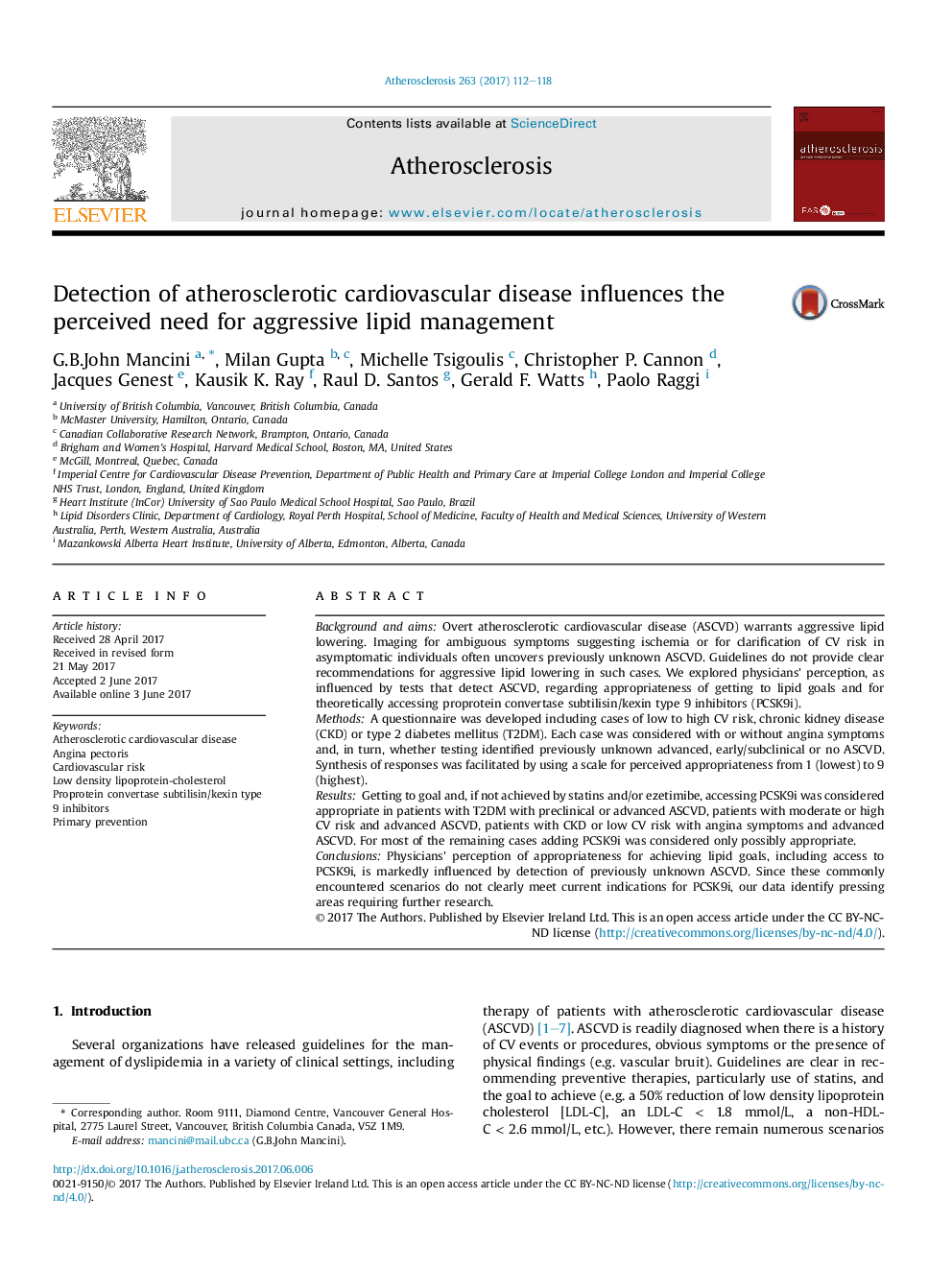| کد مقاله | کد نشریه | سال انتشار | مقاله انگلیسی | نسخه تمام متن |
|---|---|---|---|---|
| 5599290 | 1574702 | 2017 | 7 صفحه PDF | دانلود رایگان |
- The term ASCVD has broad connotations.
- Physicians often uncover ASCVD during risk stratification or assessment of patient symptoms.
- Whether or not such findings should impact the aggressiveness of lipid lowering in primary prevention is unclear.
- Results suggest that newly discovered ASCVD strongly influences perceived appropriateness for aggressive lipid lowering.
Background and aimsOvert atherosclerotic cardiovascular disease (ASCVD) warrants aggressive lipid lowering. Imaging for ambiguous symptoms suggesting ischemia or for clarification of CV risk in asymptomatic individuals often uncovers previously unknown ASCVD. Guidelines do not provide clear recommendations for aggressive lipid lowering in such cases. We explored physicians' perception, as influenced by tests that detect ASCVD, regarding appropriateness of getting to lipid goals and for theoretically accessing proprotein convertase subtilisin/kexin type 9 inhibitors (PCSK9i).MethodsA questionnaire was developed including cases of low to high CV risk, chronic kidney disease (CKD) or type 2 diabetes mellitus (T2DM). Each case was considered with or without angina symptoms and, in turn, whether testing identified previously unknown advanced, early/subclinical or no ASCVD. Synthesis of responses was facilitated by using a scale for perceived appropriateness from 1 (lowest) to 9 (highest).ResultsGetting to goal and, if not achieved by statins and/or ezetimibe, accessing PCSK9i was considered appropriate in patients with T2DM with preclinical or advanced ASCVD, patients with moderate or high CV risk and advanced ASCVD, patients with CKD or low CV risk with angina symptoms and advanced ASCVD. For most of the remaining cases adding PCSK9i was considered only possibly appropriate.ConclusionsPhysicians' perception of appropriateness for achieving lipid goals, including access to PCSK9i, is markedly influenced by detection of previously unknown ASCVD. Since these commonly encountered scenarios do not clearly meet current indications for PCSK9i, our data identify pressing areas requiring further research.
Journal: Atherosclerosis - Volume 263, August 2017, Pages 112-118
